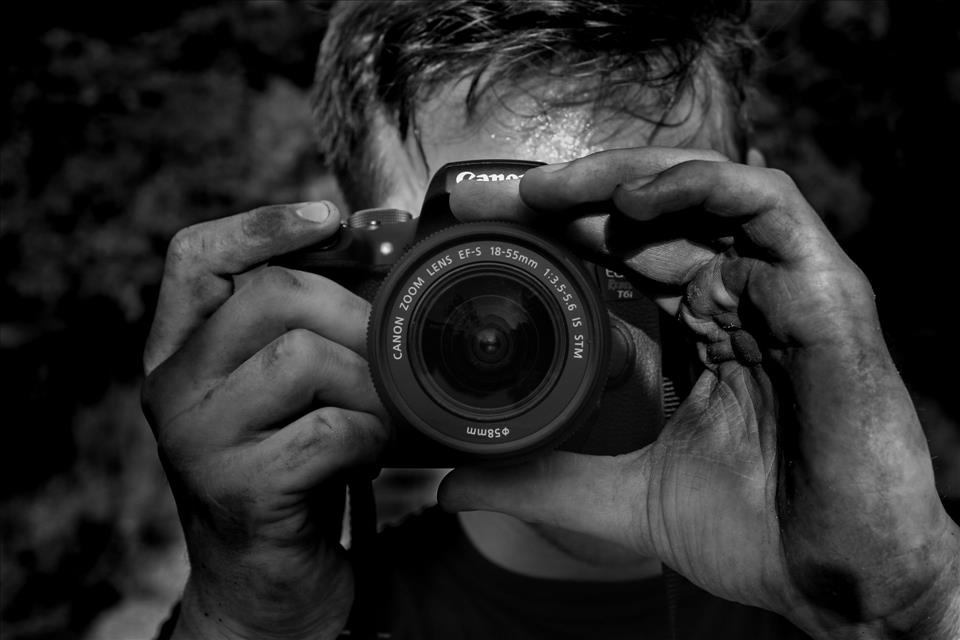
AI Is Just One Of The Thorny Issues Facing Photography Here's How The Industry Can Prioritise Ethics
But right now the industry is having a crisis of conscience, and the past few years have seen a surge in online debate about ethics, as concerns have been raised about photographic practices across a wide range of industries, from fashion advertising to charity fundraising .
These concerns have extended to the news media, which has drawn criticism for the one-dimensional representation of certain communities, for example that of black men and Afghan women , which is exacerbated by inconsistent standards applied to publishing images of suffering .
This article is part of our State of the Arts series. These articles tackle the challenges of the arts and heritage industry – and celebrate the wins, too.
While questions of image ethics are not new , this crisis is only deepening with the exponential growth in the production and use of AI-generated images .
X
It is often difficult to differentiate between photographs and photo-realistic AI-generated images, and the lines between the two are being increasingly blurred as AI images are sold on picture library platforms and used by advocacy campaigns for charities . AI images are now being used in the campaign for the upcoming US election, perhaps most famously with an AI image of Taylor Swift endorsing Donald Trump .
Despite the ongoing discussion about photography ethics, practice is sometimes slower to change. This can create a tension between those who espouse more traditional approaches to photography, and those who are critiquing those approaches. This is contributing to polarisation within the industry and a growing uncertainty about how we can use photography ethically today.
As an anthropologist who teaches visual media ethics, I am interested in how professional photographers think about and practise ethics in their work. This year, as part of my research into this topic, I analysed 48 interviews I conducted between 2020 and 2023 with people working in photography.
These interviews focused particularly on the perspectives of professionals, including those whose voices have often been marginalised within the industry. This includes black photographers, photographers of colour, photographers in the global south, disabled photographers and female photographers. All of these interviews are publicly available online .
Lessons in self-reflectionIn each interview, I asked:“What does photography ethics mean to you?” Through analysing their responses, I have distilled eight key lessons about photography ethics. From foundational ideas about the power of photography to practical advice about personal biases, collaboration, asking for consent and building trust, these lessons can help to foster a deeper understanding of the ethical considerations in photography.
One of the threads that runs through many of these lessons is the importance of self-reflection. Photographers speak about engaging in self-reflection to understand their own motivations for telling a certain story through photography, as well as their own personal perspective in relation to the stories they tell. Photographer Kirsty Mackay says:
Self-reflection can help photographers to better understand how their perspective shapes the way they tell visual stories by identifying their underlying assumptions and unconscious biases. As photographer and academic Dr Tara Pixley explains:“In your career as a photographer ... you're going to tell hundreds of stories, but the first story you have to tell to yourself is the one about you.”
While self-reflection is important for mining our motivations and mitigating our biases, it cannot achieve objectivity. Despite long-held beliefs in the objectivity of photography, there is a growing recognition within the industry that we all see the world through our own lens, subjectively. This is why we need a diversity of photographers .
Additionally, no amount of self-reflection can substitute knowledge and understanding of the people, places and topics we are photographing. Photographers like Taha Ahmad stress the importance of research in their practice. He explains that doing research can help photographers to“have a better understanding of the kind of work they are going to produce and what impact the work could make when it is out in front of the world”.
Despite its limitations, self-reflection is critical for the future of the photography industry. Photography ethics are changing as the world changes. This may mean that past practice does not match up with the current ethical standards. This may also mean that we respond to ethical issues differently today than we might have in the past. The key is to learn from our past experiences to inform our practice in the future.
The lessons identified by this report should not be understood as guidelines or rules, nor are they comprehensive. Instead, they are intended to help inform how we think about photographs, the photographic process and photography ethics – and, perhaps, they can help us to navigate the current crisis of conscience felt across the photography industry.
Looking for something good? Cut through the noise with a carefully curated selection of the latest releases, live events and exhibitions, straight to your inbox every fortnight, on Fridays. Sign up here .

Legal Disclaimer:
MENAFN provides the
information “as is” without warranty of any kind. We do not accept
any responsibility or liability for the accuracy, content, images,
videos, licenses, completeness, legality, or reliability of the information
contained in this article. If you have any complaints or copyright
issues related to this article, kindly contact the provider above.


















Comments
No comment